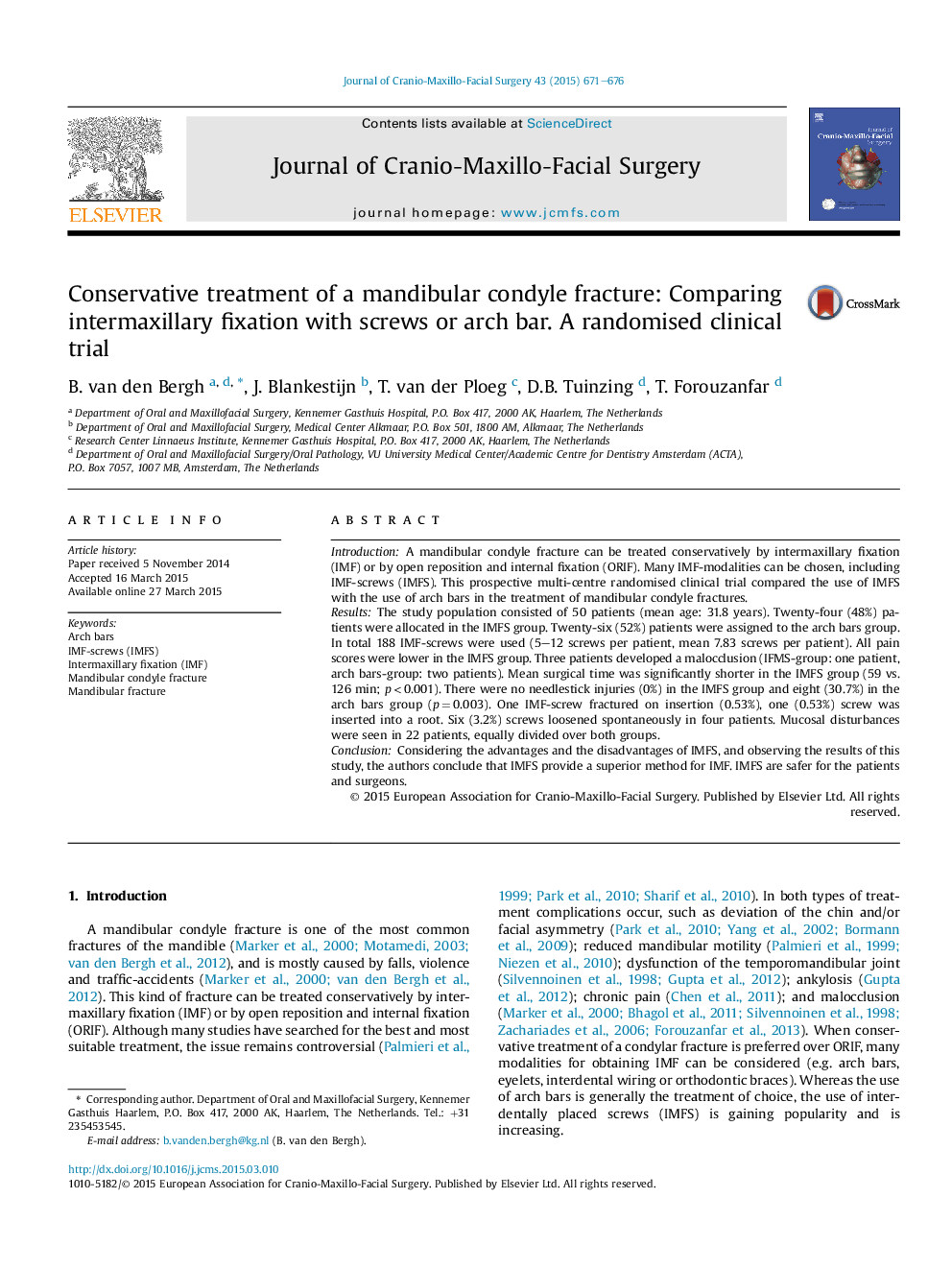| Article ID | Journal | Published Year | Pages | File Type |
|---|---|---|---|---|
| 3142537 | Journal of Cranio-Maxillofacial Surgery | 2015 | 6 Pages |
IntroductionA mandibular condyle fracture can be treated conservatively by intermaxillary fixation (IMF) or by open reposition and internal fixation (ORIF). Many IMF-modalities can be chosen, including IMF-screws (IMFS). This prospective multi-centre randomised clinical trial compared the use of IMFS with the use of arch bars in the treatment of mandibular condyle fractures.ResultsThe study population consisted of 50 patients (mean age: 31.8 years). Twenty-four (48%) patients were allocated in the IMFS group. Twenty-six (52%) patients were assigned to the arch bars group. In total 188 IMF-screws were used (5–12 screws per patient, mean 7.83 screws per patient). All pain scores were lower in the IMFS group. Three patients developed a malocclusion (IFMS-group: one patient, arch bars-group: two patients). Mean surgical time was significantly shorter in the IMFS group (59 vs. 126 min; p < 0.001). There were no needlestick injuries (0%) in the IMFS group and eight (30.7%) in the arch bars group (p = 0.003). One IMF-screw fractured on insertion (0.53%), one (0.53%) screw was inserted into a root. Six (3.2%) screws loosened spontaneously in four patients. Mucosal disturbances were seen in 22 patients, equally divided over both groups.ConclusionConsidering the advantages and the disadvantages of IMFS, and observing the results of this study, the authors conclude that IMFS provide a superior method for IMF. IMFS are safer for the patients and surgeons.
